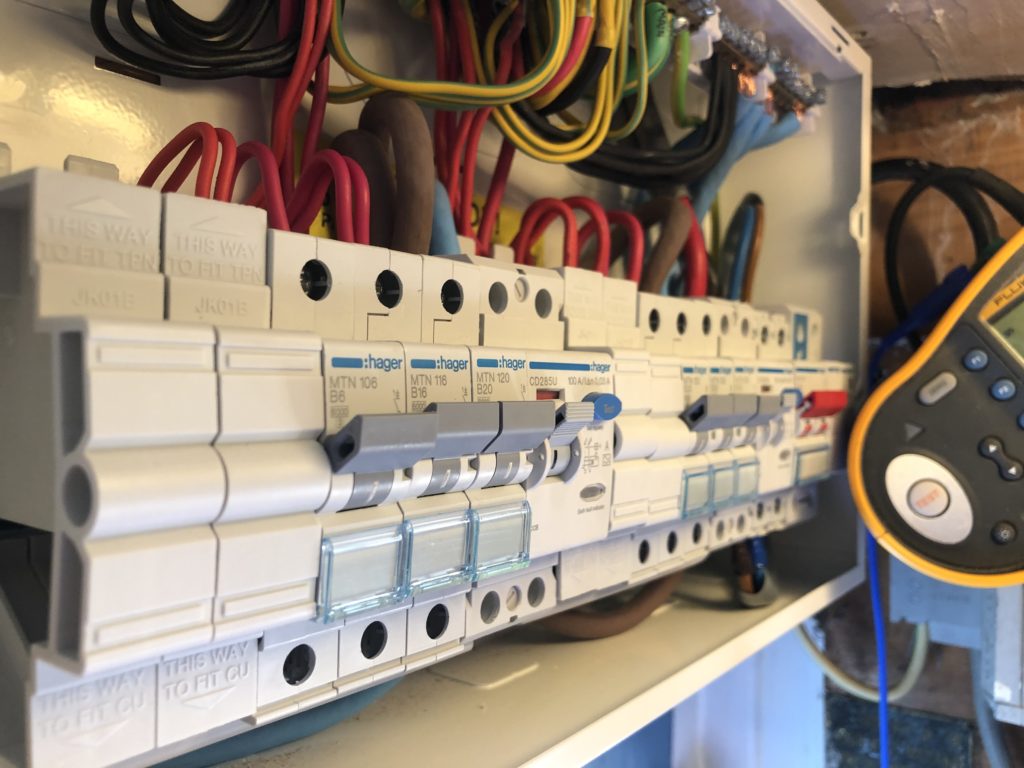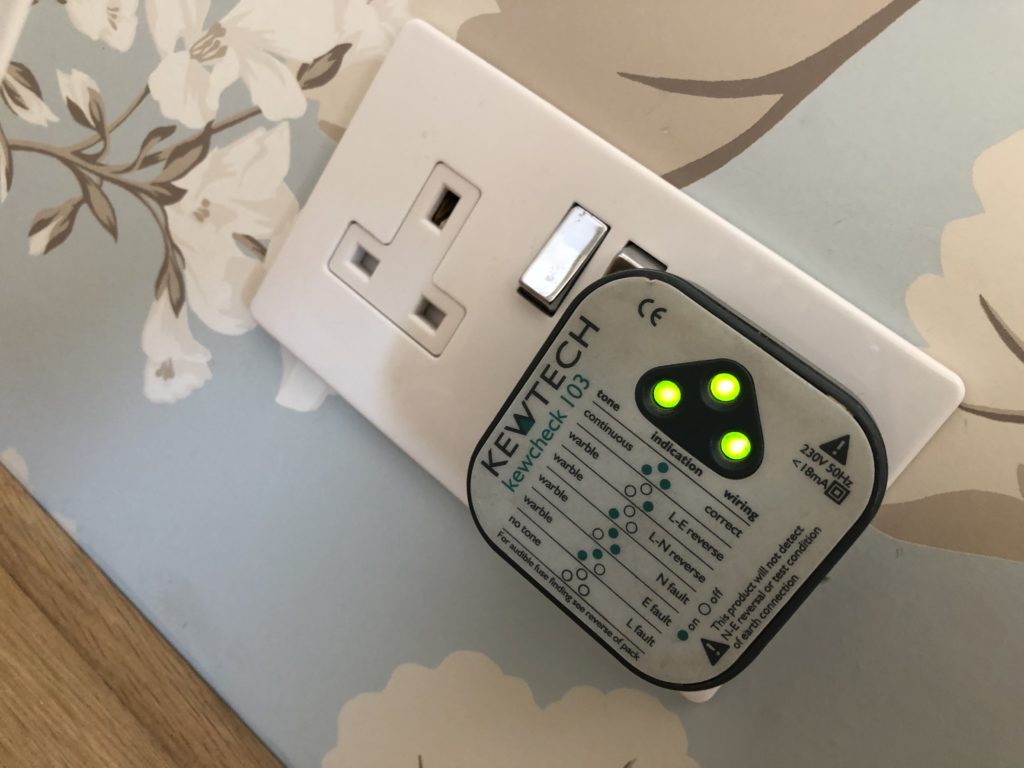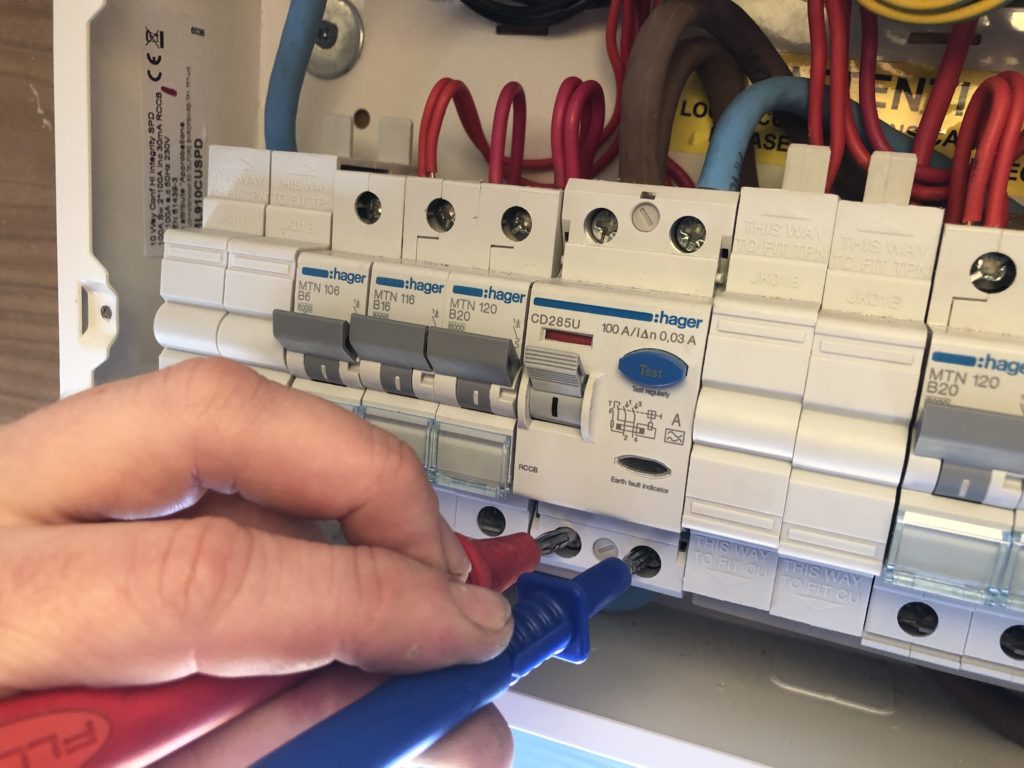Electrical-installation condition report (EICR)
Just like taking your car to the garage for an MOT, or getting a heating engineer to service your boiler, we all need to get an approved registered contractor that can be found on the Electrical Safety Register to check our electrics are safe. An EICR is the safety certificate and report that an electrician supplies following an inspection of your property.
“Campaigning charity Electrical Safety First recommends getting an EICR done every five years in a private property. Landlords are encouraged to get a new EICR each time they change their tenants, or every five years, whichever is sooner. If you fail to check and maintain your electrical systems, insurance companies can use this as a reason to refuse claims if they’re a result of electrical faults. But not enough people are aware of these checks. It’s essential to stay safe when using electricity, which is why we’d always recommend employing a professional registered electrician to work on your installation.
The statistics are scary – 70 people are killed and 350,000 people seriously injured each year because of electrical faults, and they’re the cause of almost half of all accidental UK house fires according to Electrical Safety First. We talked to Which? Trusted trader Penningtons Electrical Contractors Ltd to find out more.
If you want to carry out an EICR on your property, find a Which? Trusted Traders-accredited electrician in your area. Read on for more detail about the EICR.
What is an electrical-installation condition report (EICR)?
The EICR is a comprehensive check of the fixed wiring of your electrical installation. It’s a snapshot of your electrics to establish whether they’re safe and compliant with the regulations, and to identify any potential safety issues. It’s about checking the underlying electrical system – the wiring, the fuse board, earth bonding and all the other bits you can’t see that could be a risk – rather than whether your lights come on or not.
Your electrician will visit your property, make a visual assessment, and then carry out a series of checks on your electrical systems. If they find any ‘code one’ problems, ie problems that are immediately dangerous, they will need to arrange to fix those there and then or at least make them safe. They’ll note any other ‘code two’ problems that are potentially dangerous, and will provide a quote to fix them at the end of the process, along with any ‘code threes’, which are recommendations not deemed unsafe.
During the visit, the electrician will complete a seven-page report. A qualified supervisor will then sign off the report to make sure it’s correct. The electrical company will then provide you with a copy, following your payment for the visit and any work carried out. It will also provide you with a quote for any further remedial works recommended in order to bring your system up to standard. It can take a couple of days to process the paperwork.
Your electrician will check that your fuse board is safe and compliant with the current regulations – this means whether it has the necessary circuit breakers and RCD protection. (Residual current devices are designed to prevent you from getting a fatal electric shock if you touch something live.)
What should be checked during an EICR?
Other checks designed to prevent fatal electric shocks include ensuring that everything is correctly earthed. Your electrician will check this on your gas-meter pipework, water pipework, radiators and all the metal in the building.
They will also check a sample (at least 10%) of your sockets, lights, switches and accessories to see that the wiring is installed correctly.
Which? Trusted trader Darren Pennington, of Pennington’s Electrical Contractors Ltd, told us that the majority of properties they inspect do not pass with flying colours – in fact, he said he would be worried if they did. This is partly because the regulations are updated all the time. A property that was compliant today might not be in two years’ time.
‘The most common problems are no bonding to the gas or water-mains pipework, or an out-of-date fuse board,’ he said. ‘But the advantage of regular checks is that once you’ve corrected any major faults, those will stay corrected, and the amount of work and costs involved for further checks should be minimal.”
See this full article at Which? Trusted Traders




